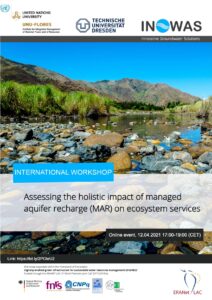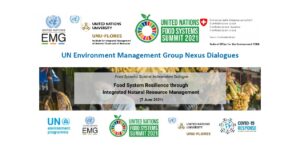Turkey is amidst an era of dramatic change in its environmental policies. After more than five years of ‘tactical’ resistance, the Turkish parliament ratified the Paris Agreement in 2021, limiting global warming to below 2 OC compared to pre-industrial levels. As a long-term partner of the EU, Turkey has substantially upgraded its environmental regulations over the past years, bringing them closer to EU requirements (1). The ratification of the Paris Agreement has been followed by the declaration of a net-zero emissions target for 2053 and the adoption of the European Green Deal Action Plan.
Ankara has positioned itself better to tackle climate change and catch up with global targets. Turkey’s efforts are visible, and the country is not dragging its heels to keep up with the global climate and environment agenda. However, Turkey needs an integrated policy framework to bridge different sectoral actors and priorities in its transition towards a low-carbon and inclusive economy to back on track to living within planetary boundaries. The Resource Nexus could be a way to ensure more integrated and sustainable use of resources and pave the way for Turkey to improve its environmental governance and management. Achieving coherence among the policy fields requires intense stakeholder coordination and systematic analysis of synergies and trade-offs across all areas. ‘Resource Nexus’ to policies can help to identify the synergies and tensions across multiple resource-related goals by highlighting the direct and indirect interconnections between natural resources and their management (2).
By 2050, Europe aims to become the world’s first climate-neutral continent. The European Green Deal presents a roadmap for the EU and its partner countries to boost the efficient use of resources by shifting to a clean, circular economy, restoring biodiversity, and cutting pollution. The Green Deal aims for more than an environmental plan: it will make the EU and its neighboring countries economically sustainable by turning climate and environmental challenges into opportunities by creating a cleaner environment, new jobs, and an overall better quality of life (3). The EU Green Deal sets out a coordinated plan to foster cooperation among governments, civil society, and businesses and bundle together various policy reforms, such as those on energy, circular economy, and agriculture.
The potential implications of the European Green Deal, domestic climate policies, and institutional arrangements will be high on Turkey’s political agenda in the coming years.
Turkey is located at the nexus of the eastern Mediterranean region and the Middle East, where global warming is 20% faster than the global average (4). The region is chronically water-stressed. In most countries, water resources are limited, fragile, and unevenly distributed (5). The projections are also not very optimistic for Turkey. Climate scenarios indicate an increase in drought frequency, duration, and severity by the end of the century. According to the recent McKinsey Global Institute (2020) report, Turkey will be among the countries suffering the most from water stress due to climate change, along with Iran, Egypt, and Mexico (6).

Photo by Enes Cimen -Ankara- Nallıhan Bird Sanctuary – Biodiversity
Turkey’s economy is growing fast- it was one of the few in the G20 and OECD to experience growth in 2020 (7). However, its growth heavily depends on fossil and carbon-intensive fuels. Greenhouse gas (GHG) emissions have increased substantially over the past decades (8, 9). Under Turkey’s current targets and policies, emissions will continue to rise and are consistent with more than 4OC warmings (10). The European Green Deal will push Turkey to depart from its current trends and develop a clear and detailed roadmap toward transforming production and consumption systems.
Photo by Oleksandr Pidvalnyi – Urban Expansion in Istanbul
The dwindling water levels, extreme heat waves, and deforestation hit the agricultural sector hardest, representing 8% of the country’s economic activity (11). While climate change is shifting the agroecosystem boundaries and forcing Turkey to down on water-intensive agriculture, the country has also been facing other environmental problems, including salinity, erosion, and desertification due to human intervention (9, 10).
Agriculture is both a cause and solution to environmental problems, making the problem two-sided. Currently, agriculture accounts for almost 75% of freshwater abstractions in the country- above the sustainable levels (12). In total, unsustainable use of land, water, and energy produces almost 13% of the greenhouse gas emissions in Turkey (13). Turkey needs substantial investments and structural measures to enhance integrated land and water management policies and make sustainable agriculture a priority taking nature-positive approaches to reduce vulnerability, improve resilience and ensure food security (14).
Sustainable resource management is an instinct of the climate change agenda and the European Green Deal. Turkey’s transition to a more sustainable, resource-efficient, and green economy depends on finding ways to stop exploiting soil, water, and air unconditionally and expand its energy transition towards renewable energy. The country must move away from output-based, siloed policies toward innovative and integrated resource management strategies to secure a low-carbon future while reducing regional and social inequalities.
Photo by Erik Karits – Antalya- Taurus Mountains- Mediterranean Ecosystem
The EU’s new development path will profoundly impact Turkey and bring concerns over climate change to the heart of policymaking. The European Green Deal requires countries to boost the efficient use of resources and address the interconnections among them. The Resource Nexus originates in the interconnections between different resources and proposes to capture synergies and avoid trade-offs by looking at resource linkages. Paying attention to the nexus between natural resources and production and consumption systems could allow Turkey to utilize its limited resources sustainably while addressing human, social, and economic capital gaps and needs.
The European Green Deal is a step towards bringing together existing policies and initiatives. It will require intense coordination to exploit the available synergies across all political areas. Resource Nexus could help Turkey bring the key stakeholders to the table and identify solutions to rethink complex policy issues across sectors. The Resource Nexus could be a key approach for the environmental policies of Turkey to improve the capacity to anticipate and minimize negative trade-offs and open cross-sectoral cooperation opportunities. Shifting to more coordinated management and use of natural resources across sectors and scales and balancing different resource user goals– while maintaining the integrity of ecosystems will also be integral to Turkey’s efforts toward the 2030 Agenda for Sustainable Development.
References
- The World Bank, “Unlocking Green Finance in Turkey,” 2022, https://documents1.worldbank.org/curated/en/099040002232227038/pdf/P174569076d6f30a20916807841092b30f3.pdf.
- European Environment Agency, “Resource Nexus and the European Green Deal,” March 2022, https://www.eea.europa.eu/publications/resource-nexus-challenges-and-opportunities.
- European Commission, “The European Green Deal Sets out How to Make Europe the First Climate-Neutral Continent by 2050, Boosting the Economy, Improving People’s Health and Quality of Life, Caring for Nature, and Leaving No One Behind,” December 2019, https://ec.europa.eu/commission/presscorner/detail/en/ip_19_6691.
- UNEP, “Climate and Environmental Change in the Mediterranean Basin – Current Situation and Risks for the Future. First Mediterranean Assessment Report”, 2020. https://www.medecc.org/medecc-reports/climate-and-environmental-change-in-the-mediterranean-basin-current-situation-and-risks-for-the-future-1st-mediterranean-assessment-report/
- Aysegül Kibaroglu, “ Water Challenges in the Mediterranean,” 2017, https://www.iemed.org/publication/water-challenges-in-the-mediterranean/#_ftn1.
- Jonathan Woetzel, Dickon Pinner, and Hamid Samandari, “Climate Risk and Response ” (McKinsey Global Institute , January 2020), https://www.mckinsey.com/~/media/mckinsey/business%20functions/sustainability/our%20insights/climate%20risk%20and%20response%20physical%20hazards%20and%20socioeconomic%20impacts/mgi-climate-risk-and-response-full-report-vf.pdf.
- “The World Bank in Türkiye,” 2021, https://www.worldbank.org/en/country/turkey.
- The World Bank, “Key Highlights: Country Climate and Development Report for Türkiye,” June 2022, https://www.worldbank.org/en/country/turkey/brief/key-highlights-country-climate-and-development-report-for-turkiye.
- OECD, “Turkey OECD Environmental Performance Reviews,” 2019, https://www.oecd.org/env/country-reviews/Highlights-Turkey-2019-ENGLISH-WEB.pdf.
- “Turkey Climate Action Tracker,” 2022, https://climateactiontracker.org/countries/turkey/.
- OECD, “Evaluation of Agricultural Policy Reforms in Turkey,” 2011, https://read.oecd-ilibrary.org/agriculture-and-food/evaluation-of-agricultural-policy-reforms-in-turkey_9789264113220-en#page5.
- OECD, “Agriculture And Water Policies: Main Characteristics and Evolution From 2009 to 2019,” 2019, https://search.oecd.org/agriculture/topics/water-and-agriculture/documents/oecd-water-policies-country-note-turkey.pdf.
- The World Bank, “World Bank Provides $341 Million Boost to Advance Green and Competitive Growth of Turkey’s Agricultural Sector,” March 2022, https://www.worldbank.org/en/news/press-release/2022/03/30/world-bank-provides-341-million-boost-to-advance-green-and-competitive-growth-of-turkey-s-agricultural-sector.
- UNECE, “Solutions and Investments in the Water-Food-Energy-Ecosystems Nexus,” 2021, https://unece.org/sites/default/files/2021-10/ECE_MP.WAT_66_new_web.pdf.



